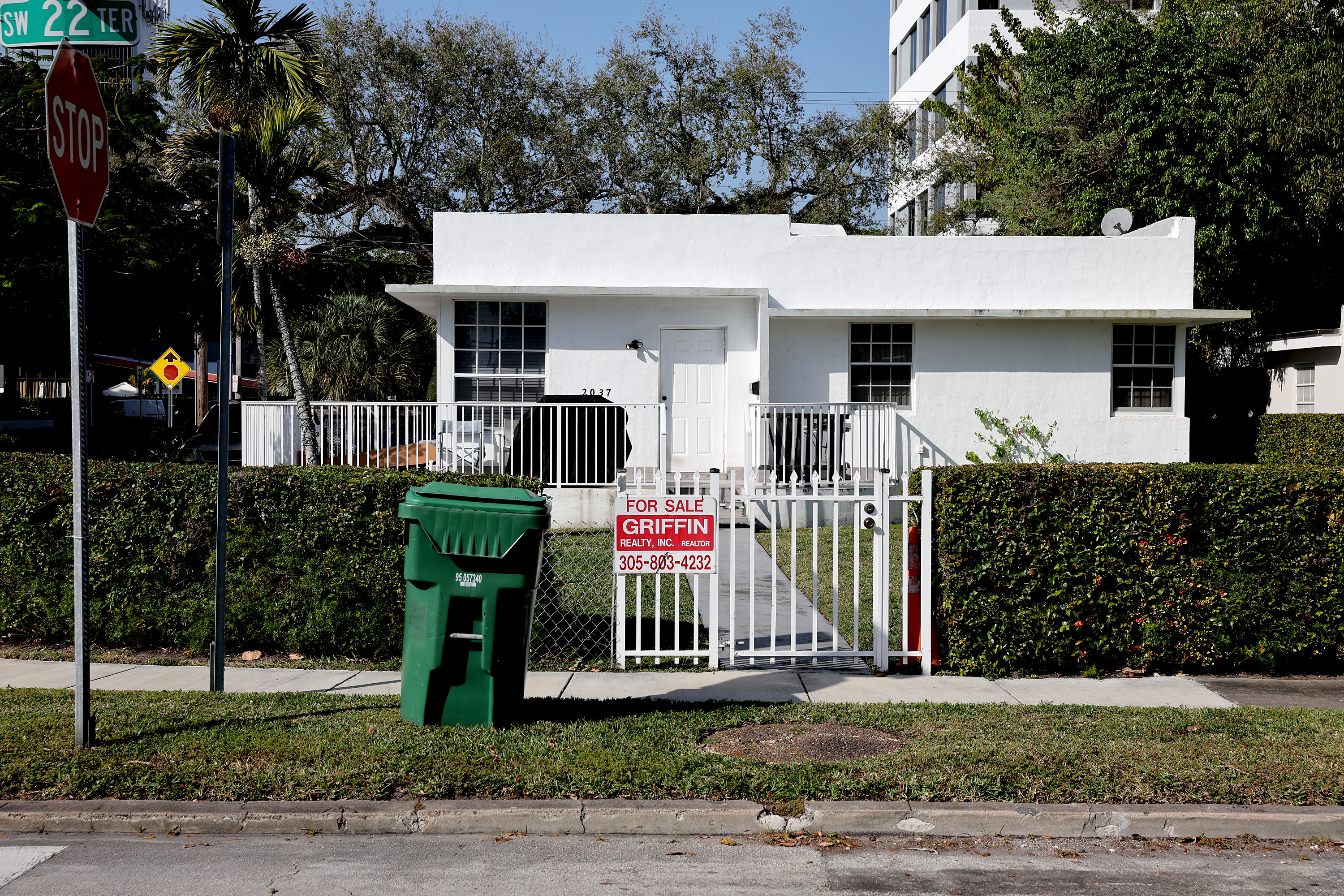Florida Housing Market Faces 2025 Struggles
Florida’s housing market is likely to face steep price declines in 2025, according to experts, as what was once among the hottest states in the nation has become a tricky place to buy and sell a home.
Nick Gerli, the CEO of the real estate data platform Reventure App, told ResiClub, a media and research company that analyzes the U.S. housing market, that home values in certain Florida markets could drop by as much as 10 percent throughout 2025, as growing inventory meets dwindling demand—and the state’s homeowners insurance market remains in shambles.
While a booming market such as Miami is expected to continue thriving next year, cities such as Tampa, St. Petersburg, Sarasota, Punta Gorda and Naples are likely to experience steep declines, Gerli forecast.
Newsweek contacted Gerli for further comment by email on Monday outside normal business hours.
Why It Matters
Housing affordability has been strained across the U.S. in the past four years, as prices skyrocketed during the pandemic because of pent-up demand and an ongoing supply shortage that has affected the entire country.
In Florida, this situation has been exacerbated by the instability of the state’s homeowners insurance sector. While hurricanes have always affected the state, climate change is making extreme weather events more frequent and more severe, increasing the risk for insurers that policyholders’ damage claims may outweigh company profits.
Joe Raedle/Getty Images
Several major insurers have cut coverage in the most disaster-prone areas of the state in the past few years or withdrawn from Florida entirely, leaving residents struggling to find coverage. At the same time, premiums have risen beyond what many can afford.
Inbound migration to Florida has also significantly slowed down since the pandemic boom, while inventory is still on the rise thanks to building projects that began in the past few years.
The result is that the number of homes for sale available in the Sunshine State is growing at a time when many aspiring homebuyers can’t afford to buy a property. This, in turn, is bringing down prices.
What To Know
Prices fell throughout 2024 in parts of the U.S. and Florida because of an increase in inventory and slowdown in demand. These same areas—the South and parts of the Mountain West—will continue seeing price declines next year, Gerli said.
The real estate analyst previously told Newsweek that states such as Florida, Texas, Arizona, Tennessee and Georgia were facing a “run-up in builder inventory,” which he expected would cause prices to drop in these regions.
“This situation is mostly isolated to the South and parts of the Mountain West,” Gerli said, adding: “Home builders in these areas permitted lots of homes during the pandemic boom and continue to permit homes in late 2024, even as buyer demand has cooled. The result is a big pile-up of homes for sale.”
Gerli also said he wouldn’t be surprised if price reductions next year “cluster in suburban and rural areas, where the home builders are most active.”
What People Are Saying
Nick Gerli, the CEO of Reventure App, told ResiClub: “Builders are starting to get a bit desperate to move their inventory, particularly down here in Florida.
“I just toured a home builder site east of Tampa where the builder offered me a 4.7 percent mortgage rate for a 30-year term, with the house priced at $150 [per square foot], which is a pretty good deal.
“Builders are getting this aggressive in Florida and other parts of [the U.S.] because they have a pileup of unsold inventory sitting on their lots.”
What Happens Next
Other analysts also expect home values to drop in parts of Florida next year. The real estate investment firm Norada wrote in a recent report that three Florida metropolitan areas were considered at “very high risk” of experiencing a downturn next year, with prices potentially dropping by as much as 15 percent in Gainesville; Palm Bay-Melbourne-Titusville, which is known as the Space Coast; and Lakeland-Winter Haven.
The Senate Budget Committee, on the other hand, warned in a recent report that the combination of rising homeowners insurance premiums and historically high home prices and mortgage rates in Florida could lead to a housing crash that might be worse than the one in 2008.


